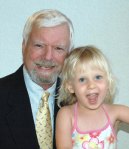Medicare and Medicaid Introduce New Expansion of Coverage for Telehealth Services
The use of telehealth for delivering healthcare services expanded in recent years, an innovation that owes much to the decision by the Centers for Medicare and Medicaid Services (CMS) to cover selected telehealth services. Even before the COVID-19 pandemic, the expansion of telehealth services coverage helped providers reach mobility-challenged patients, who found it difficult to leave their homes to receive the healthcare services they needed. It also helped expand access, making it possible for patients to receive services from providers sometimes well outside of their geographic area.
In California, for example, the County of Lasson uses GrandCare’s HIPAA-compliant telehealth capabilities to provide therapy visits. And in Ohio, LADD, a Cincinnati-based non-profit, created a smart home for disabled men, which uses GrandCare and other ground breaking innovations in accessibility, lighting and sensory control. This home is built from the ground up to enable the residents to live safer, more independent and happier lives. According to said Brian Hart, Chief Strategy Officer at LADD, “We have been working on this for a long time and our partnership with GrandCare enables us to provide a safe, scalable and affordable service model.” Reimbursement through Medicaid for these services is possible, because Medicaid has expanded its definition of assistive technology to include support for remote supports, such as reminders and prompts for daily activities, and even video calls to receive remote support from caregivers.
With the advent of the pandemic, the importance of telehealth became even more apparent, when it allowed patients to receive services safely, even as they sheltered at home. This was especially critical for our nation’s seniors, who were at the highest risk for the most severe forms of the disease. Those in congregate living were often under quarantine, and unable to safely leave their communities for needed care. The pandemic resulted in a dramatic increase in the use of remote telehealth services.
“Before the COVID-19 public health emergency (PHE), only 15,000 fee-for-service beneficiaries each week received a Medicare telemedicine service. Since the beginning of the PHE, CMS has added 144 telehealth services,” according to CMS. In the 7-month time period between mid-March and mid-October of 2020, over 24.5 million people received a Medicare-covered telehealth service.
“Telehealth has long been a priority. We started paying for short virtual visits in rural areas long before the pandemic struck. But the pandemic accentuated just how transformative it could be.” – Seema Verma, CMS Administrator
In recent months, Network Health, a Wisconsin-based insurance company, started a new program for its Medicare Advantage members in Wisconsin, using GrandCare in member homes to provide virtual visits with care managers and providers, and reduce loneliness and isolation. They will continue to roll out telehealth and medication management solutions to offer a better member experience.
This year’s Physician Fee Schedule (PFS) final rule once again expands CMS coverage for telehealth services. Although one category of new covered services is designed to be temporary, remaining on the list through the end of the declared public health emergency, others are permanent additions to the list of covered services. It’s part of a strategy, according to CMS, to “create a healthcare system that results in better accessibility, quality, affordability, empowerment, and innovation.”
“Telehealth has long been a priority,” said CMS Administrator Seema Verma. “We started paying for short virtual visits in rural areas long before the pandemic struck. But the pandemic accentuated just how transformative it could be.”
Among the many additional to this year’s schedule is a welcome broadening of the coverage for remote monitoring services. In addition, CMS has created new codes for coverage of online assessments, making it possible for qualified non-physician health care professionals to perform these services. “Medicare beneficiaries will now be able to receive dozens of new services via telehealth, and we’ll keep exploring ways to deliver Americans access to healthcare in the setting that they and their doctor decide makes sense for them,” said HHS Secretary Alex Azar.



 Fergus Falls, MN – Lakeland Home Care, an LB Homes agency, announced today that they have received a four star quality of patient care rating by Medicare. The average quality rating is 3 stars. LB Homes attributes their high rating to a number of factors including GrandCare’s remote monitoring, telehealth and socialization platform. LB Homes uses this technology in a service called “LB Homes Connect” to provide top-notch care to remote clients.
Fergus Falls, MN – Lakeland Home Care, an LB Homes agency, announced today that they have received a four star quality of patient care rating by Medicare. The average quality rating is 3 stars. LB Homes attributes their high rating to a number of factors including GrandCare’s remote monitoring, telehealth and socialization platform. LB Homes uses this technology in a service called “LB Homes Connect” to provide top-notch care to remote clients.


 The Leading Forum on Recovery Audits, Readmissions, Value-Based Purchasing, HACs and Never Events, and Managing to Medicare Margins
The Leading Forum on Recovery Audits, Readmissions, Value-Based Purchasing, HACs and Never Events, and Managing to Medicare Margins





